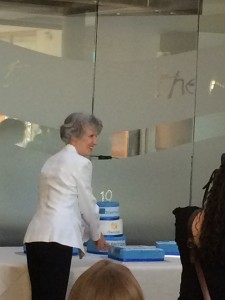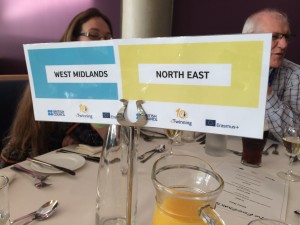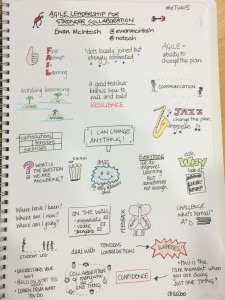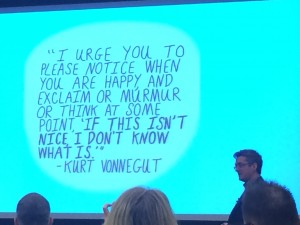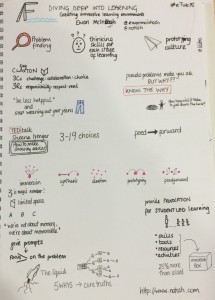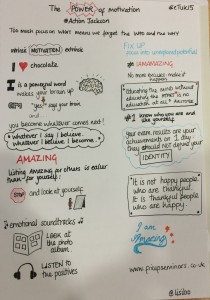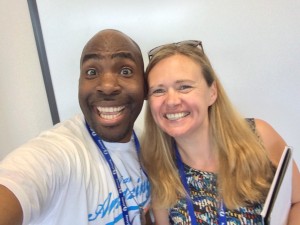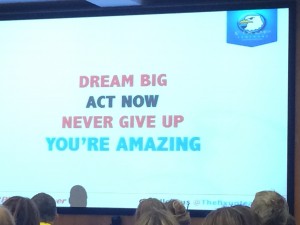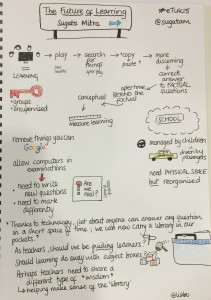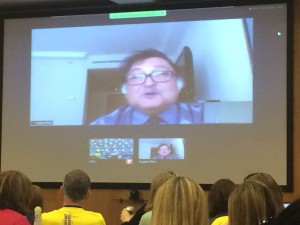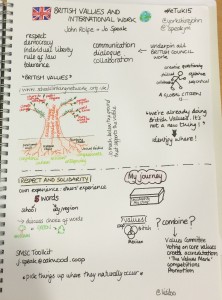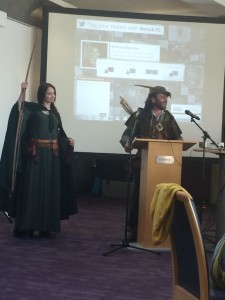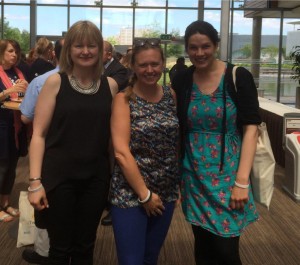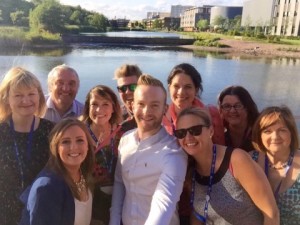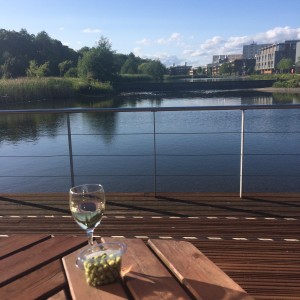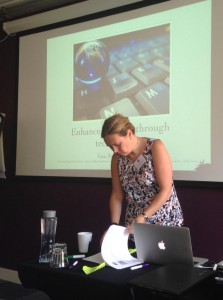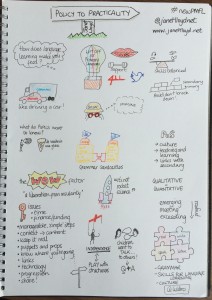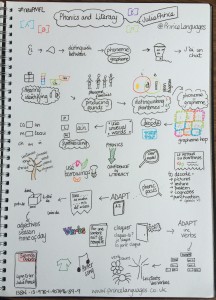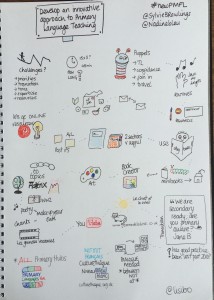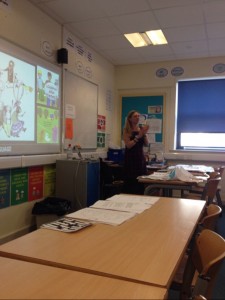 On Saturday 27th February, I delivered a workshop at the #ALLMFLSW16 conference in Bristol. I’d been asked by Marie-France Perkins if I could talk about primary languages in the context of the new curriculum which is planned as a continuum from KS2 through KS3 and onto Ks4 and hopefully KS5. I called my session Building Firm Foundations for Strong Buildings, harking back to a talk I did a number of years ago called Bricklaying for Beginners!
On Saturday 27th February, I delivered a workshop at the #ALLMFLSW16 conference in Bristol. I’d been asked by Marie-France Perkins if I could talk about primary languages in the context of the new curriculum which is planned as a continuum from KS2 through KS3 and onto Ks4 and hopefully KS5. I called my session Building Firm Foundations for Strong Buildings, harking back to a talk I did a number of years ago called Bricklaying for Beginners!
Below is my presentation, and under that I’ve written a brief summary of what I said.
I hope you find it useful. If you have any questions, please feel free to comment or send a message via the contact form.
I began by talking about the importance of foundations, and the role they place in keeping buildings upright and stable. Although they are often unseen, they are the last things that are destroyed by time and erosion; I shared my own experience of primary language learning and how my 4 years of middle school French have stayed with me. We moved on to considering why starting language learning at primary is so important before considering what should be taught/covered at KS2, referencing a
survey by Clare Seccombe and also
a document compiled by the ESAGMFL group.
Looking directly at the Programmes of Study, we used Rachel Hawkes’ helpful “KS2 and KS3 side by side” document to look at the progression of skills and I shared the document below with participants, acknowledging the source as
Rachel’s website.For me, my most important task as a primary language teacher is to nurture a passion for languages and an excitement about learning and communicating in other languages. That, however, does not mean that it’s all ‘fun and funky singing, dancing, cutting and sticking ‘ with no substance. There is a clear rationale to what I teach and I shared some ideas linked to each of the four skills as well as grammar.
Listening
- animal symphonies – clapping the syllables of words to encourage listening and awareness of word patterns
- using rhymes to listen out for phonics and respond physically
- using songs as a way of introducing topics e.g. ¿Cuántos años tienes?
- stories as a way of encouraging listening carefully and responding – ‘safe’ due the familiarity and repetition
- branching listenings or minimal pairs (slide24)- I first encountered these last year at ILILC in a session by Julie Prince, and I shared two examples from LightBulbLanguages – colours (Spanish) and jobs (French) Learners listen to a series of words – or phrases – and at each step choose between two alternatives until they arrive at the bottom line and give the number they reached.
Speaking
- PHONICS! So important! The keystones of the foundations as they enable understanding of the spoken word, pronunciation, enable learners to read effectively and also spell. Rachel Hawkes once more had burning ears!
- vowels and setting them to DISCO by Ottawan
- phonic islands and mats, referencing Sounds and Words by Lynne Erler and Julie Prince
- “stress punching” to demonstrate intonation and stress patterns
- “Spanish glasses” to read Spanish – chocolate is spelt the same in English and Spanish but pronounced differently (slide 30 ) also false friends like gift and Gift in German.
- tongue twisters to practice ‘getting your mouth around’ certain sounds
- using Trapdoors to practice sentences – learners will play long after you’d think they’d be fed up!
- using board games to practice the question form (I shared a Snakes and ladders board game worksheet from Eurostars with learners asking a question when they land on a square rather than giving an opinion)
Reading
- using poems like Doña Pitu Piturra that have a rhythm and a rhyme, and a pattern that can be followed – and the example also shows handwriting which fascinates and is worth discussion
- using Tarsia and dominoes
- using storybooks isn’t a bad thing – even Y6 like a story, especially if you link it to reading to younger pupils or making something to be shared.
- books don’t have to be fiction – non fiction is important too. Books on e.g. planets can be accessed as learners have learned the facts in Science and can therefore make deductions about vocabulary etc. Plus there are diagrams and images to support.
- the importance of making mistakes and discussing WHY you thought something
- instilling the idea that you don’t need to understand every word, and linking in to literacy skills of comprehension: where will I find the answer? what are my clues? what’s the context? is there a word in the question that helps me?
- making your own texts using storybird.com – I shared ¿De dónde viene el yak? There are other MFL Storybirds shared on the wikispace both fiction and nonfiction. Well worth a look.
- dictionaries can be glossaries, picture dictionaries and encyclopaedia/thematic type ones as well as the ‘tradition’ bilingual ones. I shared an activity linked to a colour poem which Y3 had rewritten using a combination of picture dictionaries and bilingual dictionaries.
Writing
- writing texts from other texts e.g. rewriting stories by substituting nouns and or adjectives (El bicho hambriento), or writing a story in the style of another (rewriting El Nabo Gigante to feature a teacher stuck in the PE cupboard who calls for help to pull him out!)
- the value of whiteboards and technology to allow for quick correction without committing it to their book – rehearsing and making mistakes
- giving structures using card, human sentences to physically demonstrate word order e.g. making sentences negative, or the noun-adjective order in Spanish compared to adjective-noun in English
- scaffolding
- memorisation – I shared another activity from LightBulbLanguages to demonstrate a way of supporting learners in memorising spellings by giving them the shape of the word
Grammar
- Grammar is the cement that holds all the bricks together!
- link it to English – and/or other languages e.g. making plurals
- using songs is quite effective e.g. ¿Por qué es mi mochila tan pesada? introduces Es+ singular noun and Son+plural noun – learners picked it up without me saying a word!
- I also shared songs for verbs in Spanish, German and French
- using parallel texts to compare language
- making verb spiders or flowers – if you teach South American Spanish you can use a hand!
- verb drilling isn’t wrong – Y6 quite enjoyed it last year and treated it like a code or game that they conquered as they did it more!
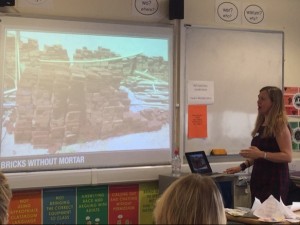
I then talked about the importance of promoting language learning in general and that no one language is an island – let’s celebrate the multilingual nature of our schools and draw out the experiences of our EAL learners. Comparing and contrasting languages is one of the things my learners enjoy more than anything else, and it’s language learning skills that are going to be key for their future success, especially as most of my learners will start a new language at KS3. I briefly highlighted the importance of including culture in whatever you do as languages need a context and it’s jot just about words!
Finally we considered that not all foundations are the same – some are more basic than others i.e. some pupils will arrive at KS3 with less language learning, or perhaps with gaps in the expected knowledge (whatever that may be!) Some may have experienced lots of vocabulary and not much structure, some may have had a very sporadic language input, some may have encountered several languages and some only one. Whatever the experience, and however many ‘cracks’ there may be, my plea was to not destroy what has gone before but repair it, and shore it up.
The final part of my presentation (which I admit we don’t reach due to overrunning previous sessions) considered the need for Ks2 and KS3 to communicate. KS2 can’t moan about what happens at KS3 if they don’t tell their secondary colleagues what has been done, and KS3 can’t throw their hands up and say it’s impossible to deal with all these children if they don’t talk to KS2 and give an idea of what would be helpful to them. On p69 of Language Trends survey it says:
“The need to promote effective transition in languages between Key Stages 2 and 3 is not yet high on the agendas of either primary or secondary schools….the introduction of compulsory language learning has not yet stimulated increased contact between language teachers in state primary and secondary schools.”
That has to change!
My final thought was from an article about building foundations:
“The three most important purposes of foundations are to bear the load of the building, anchor it against natural forces such as earthquakes, and to isolate it from ground moisture.”
I’d categorise those three things as future learning at KS3 and beyond, wavering confidence as ‘it gets a bit serious’ and the ‘rising damp’ of adolescence! Ultimately, we want learners to ride those storms and sit proudly atop their magnificent linguistic skyscrapers, not falling like Humpty Dumpty never to be put together again!
 I was asked to present an idea at the Primary Spanish Show and Tell at Language World in Hinckley last week.
I was asked to present an idea at the Primary Spanish Show and Tell at Language World in Hinckley last week.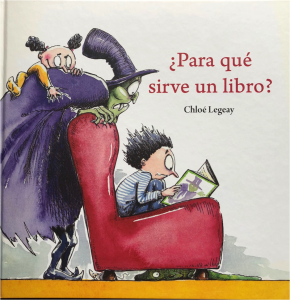
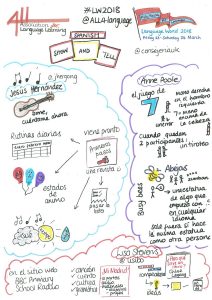
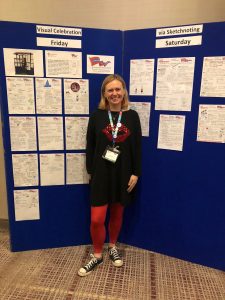
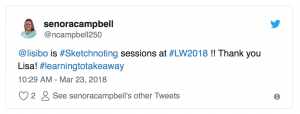
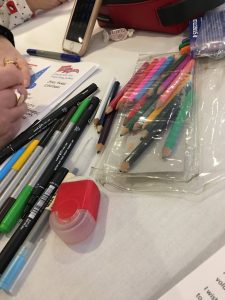
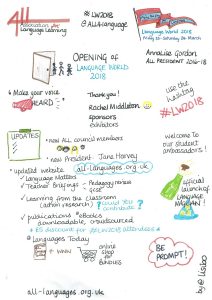
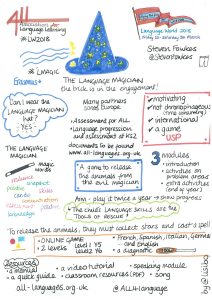
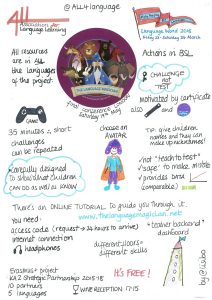
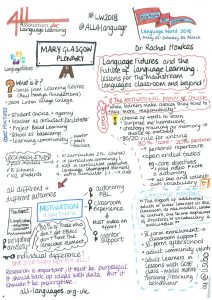
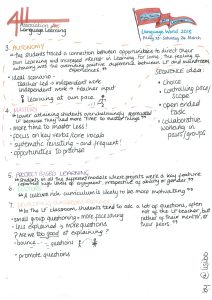
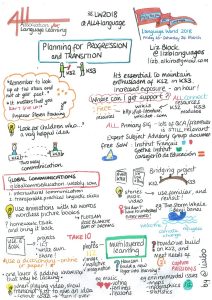
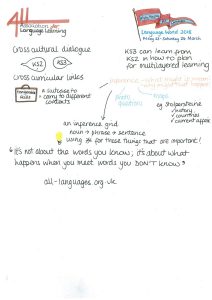
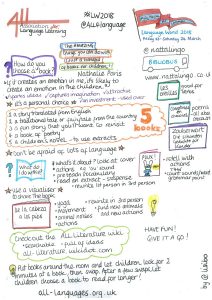
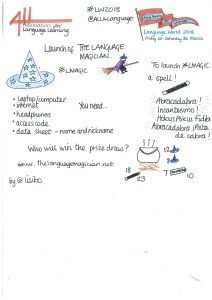
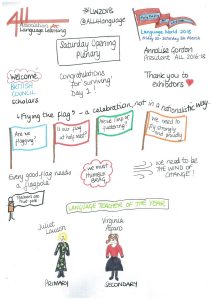
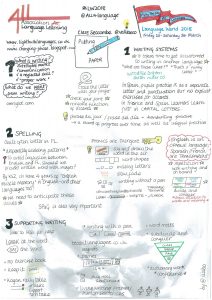
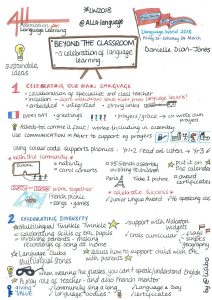
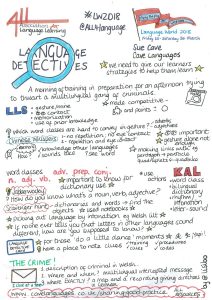
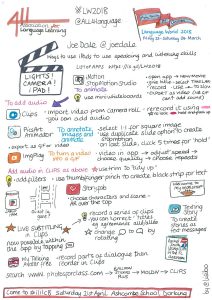
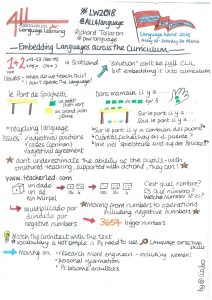
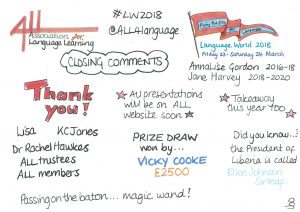
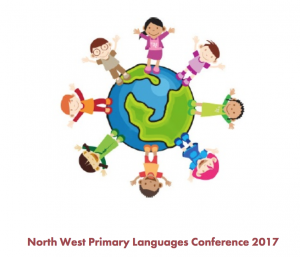
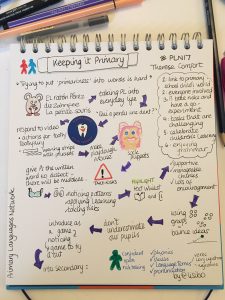
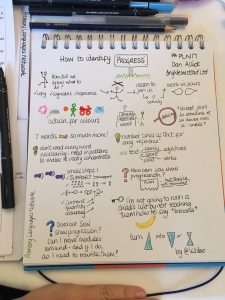
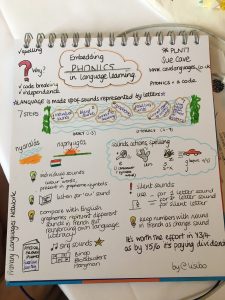
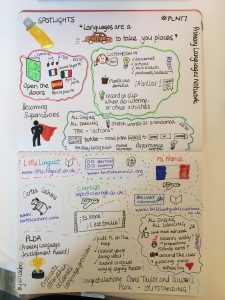

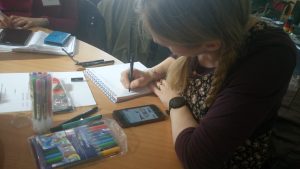
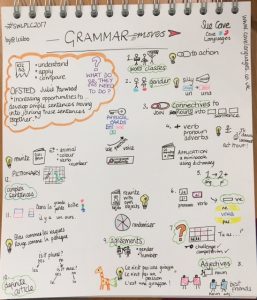
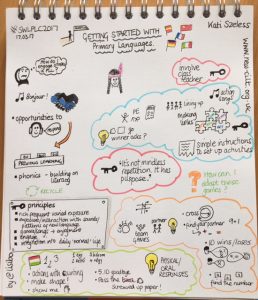
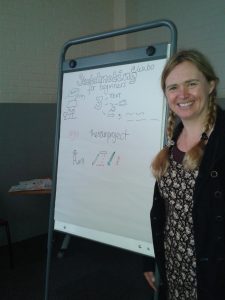


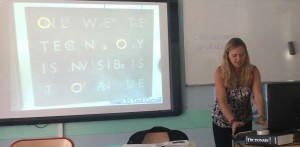

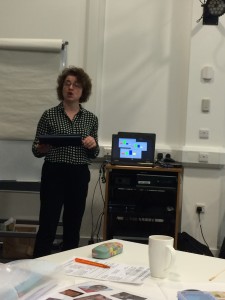
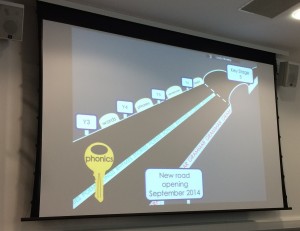
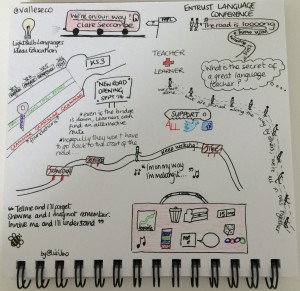
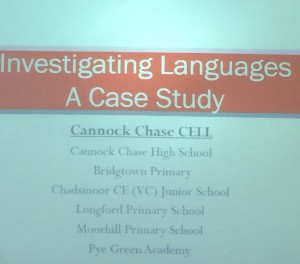
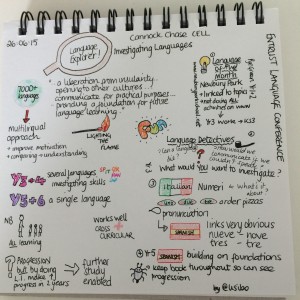
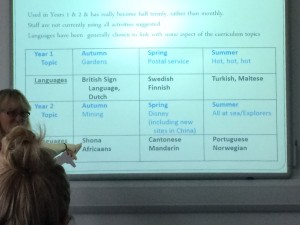
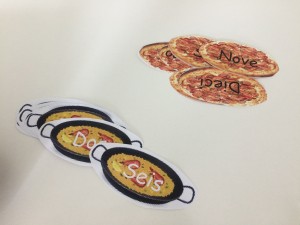
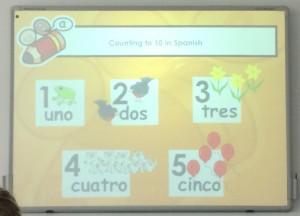
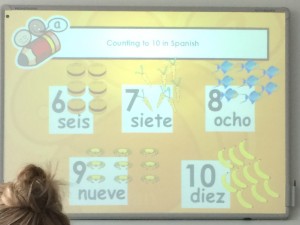
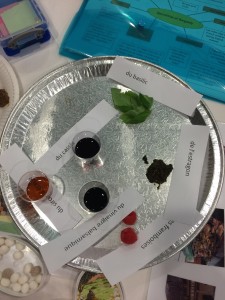
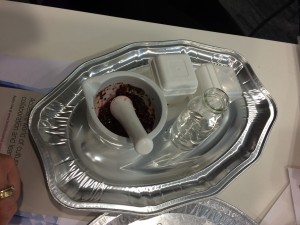
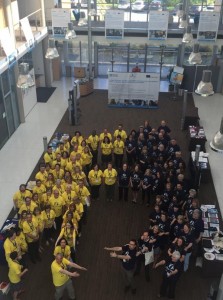
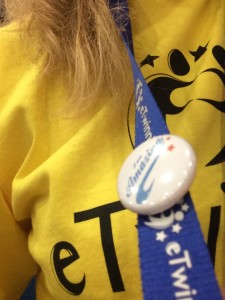
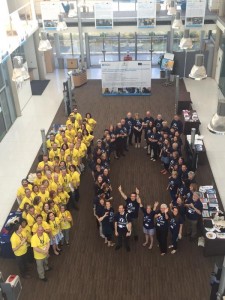
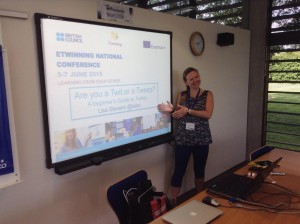 I spoke once more about Twitter – Are you a Twit or a Tweep? You can see my presentation here –
I spoke once more about Twitter – Are you a Twit or a Tweep? You can see my presentation here – 